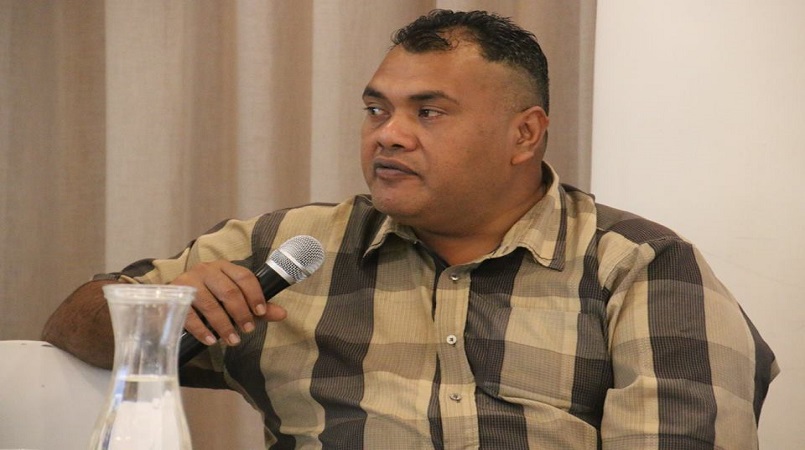
“If your family is hungry, if there is no food in the kitchen, there will be a problem.”
These were the words Anitelu Toe’api, Public Relations and Communications officer for the Civil Society Forum of Tonga.
“If there is no money in the bank account for your family’s needs, there will be a problem,” he continued.
Toe’api was presenting human security analysis of the issues civil society groups are addressing through their work during the opening session of a two-day Global Partnership for the Prevention of Armed Conflict (GPPAC) Tonga national consultation hosted by the Talitha Project.
The activity is part of the regional Gender Inclusive Conflict Prevention and Human Security programme of GPPAC Pacific coordinated by femLINKpacific and supported by the Pacific Islands Forum Non State Actors programme funded by the European Union.
Participants include representatives from Naunau ‘o e ‘Alamaite Tonga Association (NATA), Bahai Faith, Civil Society Forum of Tonga, Catholic Church, Assemblies of God International Christian Worship Centre, Ma’a Fafine Mo e Famili, Tonga Trust, Girl Guides, Tonga Family Health Association as well as local government officials.
The Tonga national consultation is a follow up from the annual GPPAC Regional CSO Forum, convened by femLINKpacific in Suva, Fiji in July this year, where members of the network reaffirmed their collective strategies as a network of pacific peace builders including Peace Education.
According to Vilai Ilolahia of Ma’a Fafine Mo e Famili - a Tongan non-governmental organisation working on women and family’s human rights - this is one way to tackle the root causes of conflicts, including the prevalence of domestic violence.
“The best way is to educate (people) about the issue,” he said. “More of the focus should be directed towards educating the people and the more we can mobilise them (the more we can) turn our energy towards practicality.”
Peace education programmes, he added, should include government officials, civil society and traditional and religious leaders.
This, according to Toe’api, is a way to address the power structures in particular the unequal distribution of power in homes and communities which is a root cause of conflict.
“Most of the domestic violence between wife and husband is (because there is) no food at home, no money and who has the power at home?” he outlined. “Most of the young people are feeling disconnected from their homes, doing crime, accessing drugs because they feel that home is not a home for them.”
In her introductory remarks, Sharon Bhagwan Rolls, Executive Producer-Director of femLINKpacific and the Chairperson of the International Board of GPPAC, highlighted how women leaders from Fiji, Solomon Islands and Tonga have been collaborating for more than 10 years dedicated to enhancing human security approach in order to contribute to the prevention of violence and conflict which each country had experienced.
“That’s why we decided to engage with GPPAC because it is about shifting from reaction to prevention,” she explained.
Since 2009, femLINKpacific has convened the GPPAC Pacific network and this year Vanessa Heleta, the Director of the Talitha Project in Tonga was elected Chairperson of the GPPAC Pacific Regional Steering Group.
Photo by femLINKPacific. Caption: Anitelu Toe'api speaking at the Global Partnership for the Prevention of Armed Conflict (GPPAC) Tonga national consultation
